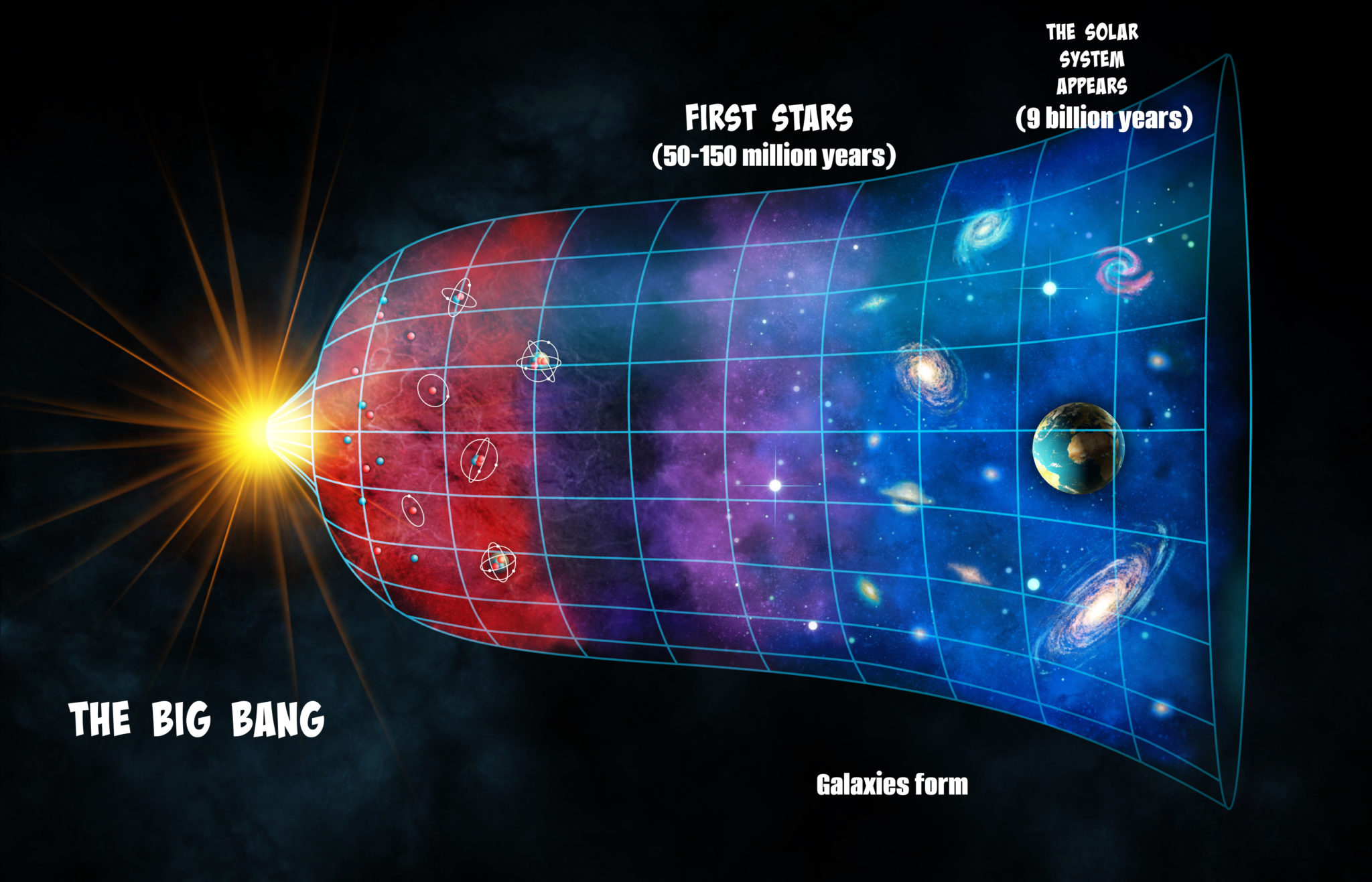The Borde–Guth–Vilenkin (BGV) theorem is a theorem in physical cosmology which deduces that any universe that has, on average, been expanding throughout its history cannot be infinite in the past but must have a past spacetime boundary.
The question remains whether the big bang was truly the beginning of the universe. A beginning in what? Caused by what? And determined by what, or whom? These questions have prompted physicists to make every attempt to avoid a cosmic beginning.
In this essay, I review where we now stand.
When physicists or theologians ask me about the BGV theorem, I am happy to oblige. But my own view is that the theorem does not tell us anything about the existence of God. A deep mystery remains. The laws of physics that describe the quantum creation of the universe also describe its evolution. This seems to suggest that they have some independent existence.
What exactly this means, we don’t know.
And why are these laws the ones we have? Why not other laws?
We have no way to begin to address this mystery.

 inference-review.com
inference-review.com
The Beginning of the Universe
By Alexander VilenkinThe question remains whether the big bang was truly the beginning of the universe. A beginning in what? Caused by what? And determined by what, or whom? These questions have prompted physicists to make every attempt to avoid a cosmic beginning.
In this essay, I review where we now stand.
An Unaddressable Mystery
The answer to the question, “Did the universe have a beginning?” is, “It probably did.” We have no viable models of an eternal universe. The BGV theorem gives us reason to believe that such models simply cannot be constructed.When physicists or theologians ask me about the BGV theorem, I am happy to oblige. But my own view is that the theorem does not tell us anything about the existence of God. A deep mystery remains. The laws of physics that describe the quantum creation of the universe also describe its evolution. This seems to suggest that they have some independent existence.
What exactly this means, we don’t know.
And why are these laws the ones we have? Why not other laws?
We have no way to begin to address this mystery.

The Beginning of the Universe | Alexander Vilenkin | Inference
Despite the perplexing questions associated with the universe having a beginning, the BGV theorem shows it must have had one. Alexander Vilenkin describes the theory of quantum creation, and why it means that the universe both could have a beginning and be uncaused.

